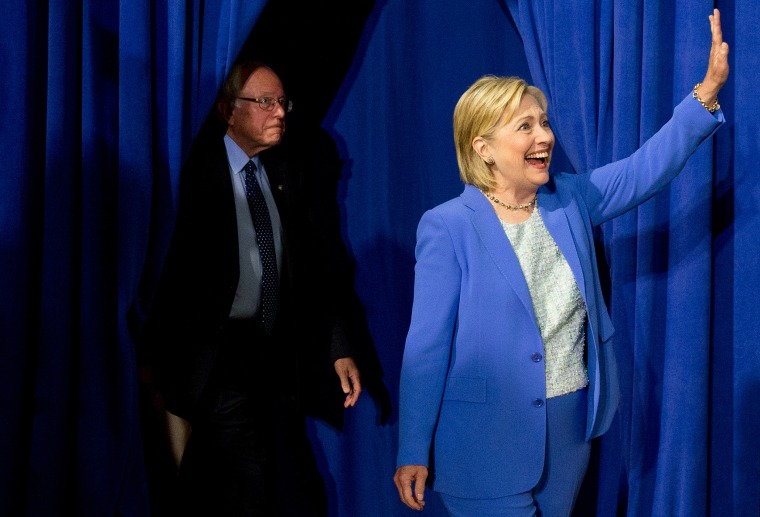As early supporters of Bernie Sanders’ campaign, we have been incredibly excited to see the progress that the progressive wing of the Democratic Party has made this election cycle. We endorsed Bernie because he spoke to the concerns that so many of our constituents have about government working for them, not just the wealthy or the well-connected few. His message of progressive populism and the passionate response it received from millions of Americans — Democrats and independents alike — have succeeded in pushing our presumptive nominee Hillary Clinton to join with Bernie in adopting the most progressive party platform in the Democrats’ history.
Despite these gains, there is more work to be done at the Democratic National Convention in Philadelphia to unite our party and ensure that its structure lines up with its core principles. That is why, as members of the DNC Rules Committee, we plan to introduce an amendment to end the superdelegate system — and why we won’t give up until this fundamentally anti-democratic structure is eliminated.
RELATED: Democrats gear up for fight on superdelegates
As Democrats, we value fairness, diversity, and inclusion. Our party is committed to the principle of just and equal representation, and for decades, the Democratic Party has been at the forefront of the fight for voting rights, for expanded access to the ballot, for a representative democracy that ensures every voice is counted.
Yet our party’s most important nominating process includes a system of unpledged superdelegates that allows Democratic elected officials and party insiders to vote however they please, regardless of the will of their state’s voters. That flies in the face of every one of our democratic values.
As a party committed to lifting up the disenfranchised, the current delegate system gives disproportionate power and representation to the most historically enfranchised demographic, older white men. In every recent cycle, the party insiders making up superdelegate cohorts have been far older, far more male, and whiter than base voters and pledged delegates.
This structure also creates the chance that in future elections, the most important political decision our party’s voters get to make could be overturned by political insiders. Let’s be very clear: Under current bylaws, superdelegates have as much weight as the pledged delegates from the District of Columbia, 4 territories, and 24 states combined. Yet there is no rule that prevents them from overturning the will of the party’s voters, making this a real — and incredibly concerning — possibility.
Related: How Do superdelegates work? Here's what you need to know
Finally, as has proven true during this year’s nominating process, the superdelegate system can cast doubts among rank-and-file voters about whether their vote — and their voice — really counts. Whether they end up tipping the balance or not, the mere existence of superdelegates adds to the perception among many voters that the political system is rigged. Why force any nominee to carry that albatross when the problem can be so easily resolved?
Now that the nomination process is almost over, we need to do everything we possibly can to sustain the energy we saw during this primary, bring our party together and focus our combined resources and efforts on the all-important task of defeating Donald Trump and his Republicans up and down the ballot in November. If we want a Democratic Party that leaves Philadelphia at the end of this month as healed, as fired up, and as ready to fight as possible, we can think of no better move than to get rid of unpledged superdelegates and prove that we are, in fact, a party that is committed to working for all of us, not just the wealthy and the well-connected few.
Chuy Garcia is the Cook County, Illinois, commissioner and a DNC Rules Committee member who supported Bernie Sanders during the primary.
Aaron Regunberg is a Rhode Island state representative and a DNC Rules Committee member.
